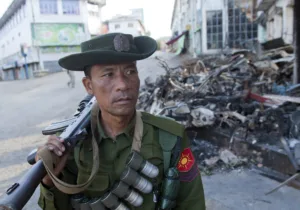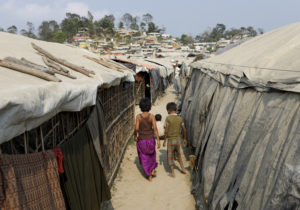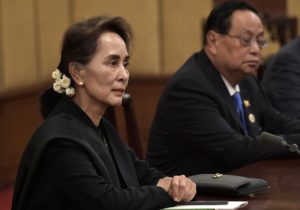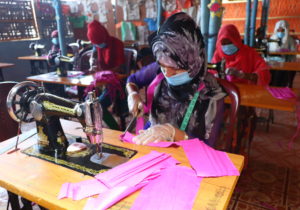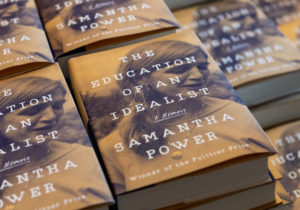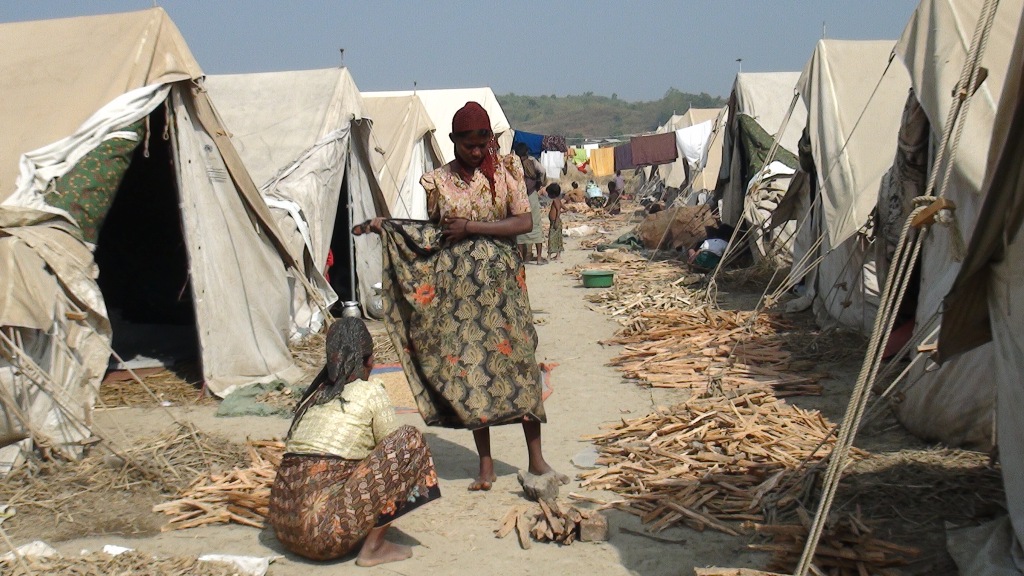The Burmese Military and the Separation of Military and State
Aung San Suu Kyi won a Nobel Peace Prize before, shockingly, declining to condemn genocide in her own nation. What happened?
James RowellSeptember 14, 2023
Protecting Rohingya after the Coup in Burma
The brutalities endured by Burma’s Rohingya—the country’s most vulnerable population—were bad even before the recent coup. The US response must take their plight into account, or risk making it even worse.
Hannah So & Olivia EnosFebruary 16, 2021
Myanmar Coup Could Benefit China
The US must act swiftly and decisively against the Myanmar coup to preserve the country’s recent democratic gains and send a message to China.
Isabella MeibauerFebruary 1, 2021
In Myanmar, COVID-19 Poses Greatest Risk to Democracy
With Myanmar’s military still controlling 25 percent of its parliament and a history of brutal crackdowns—not to mention the recent Rohingya crisis—COVID-19 is exacerbating the precarious balance between the military and civilians in power.
Isabella MeibauerJuly 21, 2020
What Power Still Gets Wrong on Humanitarian Intervention: A Review of Samantha Power’s The Education of An Idealist
In “The Education of an Idealist,” Samantha Power comes across as a compassionate person with generous impulses. These attributes cannot by themselves determine policy on the question of humanitarian interventions.
David L. TubbsJuly 17, 2020
America Should Support the Rohingya and Place Sanctions on Burmese Military
The Burmese military is the primary perpetrator of violence against Rohingya. Villages in Maungdaw township on the border with Bangladesh are almost completely empty because Rohingya fled the brutal violence. The United Nations is calling it a textbook case of ethnic cleansing, and Human Rights Watch believes it may constitute crimes against humanity.
Olivia EnosOctober 24, 2017
